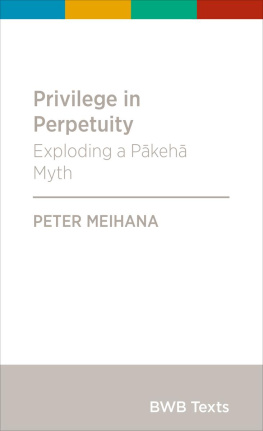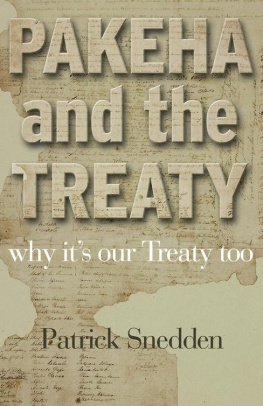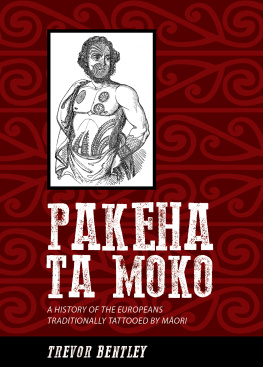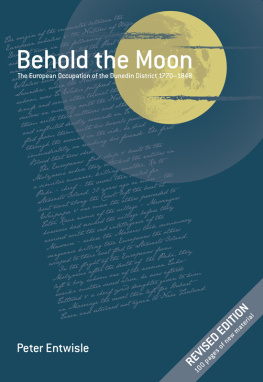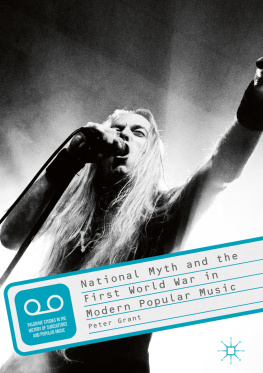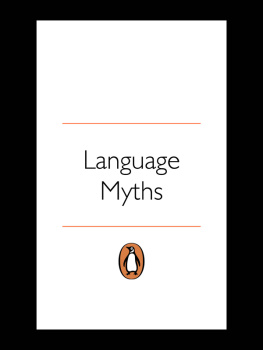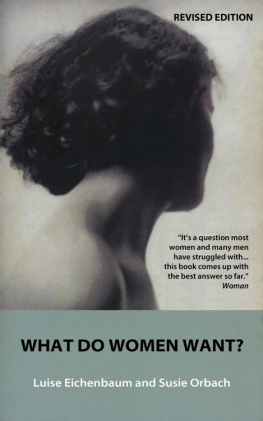Peter Meihana - Privilege in Perpetuity: Exploding a Pākehā Myth
Here you can read online Peter Meihana - Privilege in Perpetuity: Exploding a Pākehā Myth full text of the book (entire story) in english for free. Download pdf and epub, get meaning, cover and reviews about this ebook. year: 2023, publisher: Bridget Williams Books, genre: Politics. Description of the work, (preface) as well as reviews are available. Best literature library LitArk.com created for fans of good reading and offers a wide selection of genres:
Romance novel
Science fiction
Adventure
Detective
Science
History
Home and family
Prose
Art
Politics
Computer
Non-fiction
Religion
Business
Children
Humor
Choose a favorite category and find really read worthwhile books. Enjoy immersion in the world of imagination, feel the emotions of the characters or learn something new for yourself, make an fascinating discovery.
- Book:Privilege in Perpetuity: Exploding a Pākehā Myth
- Author:
- Publisher:Bridget Williams Books
- Genre:
- Year:2023
- Rating:4 / 5
- Favourites:Add to favourites
- Your mark:
- 80
- 1
- 2
- 3
- 4
- 5
Privilege in Perpetuity: Exploding a Pākehā Myth: summary, description and annotation
We offer to read an annotation, description, summary or preface (depends on what the author of the book "Privilege in Perpetuity: Exploding a Pākehā Myth" wrote himself). If you haven't found the necessary information about the book — write in the comments, we will try to find it.
Privilege in Perpetuity: Exploding a Pākehā Myth — read online for free the complete book (whole text) full work
Below is the text of the book, divided by pages. System saving the place of the last page read, allows you to conveniently read the book "Privilege in Perpetuity: Exploding a Pākehā Myth" online for free, without having to search again every time where you left off. Put a bookmark, and you can go to the page where you finished reading at any time.
Font size:
Interval:
Bookmark:
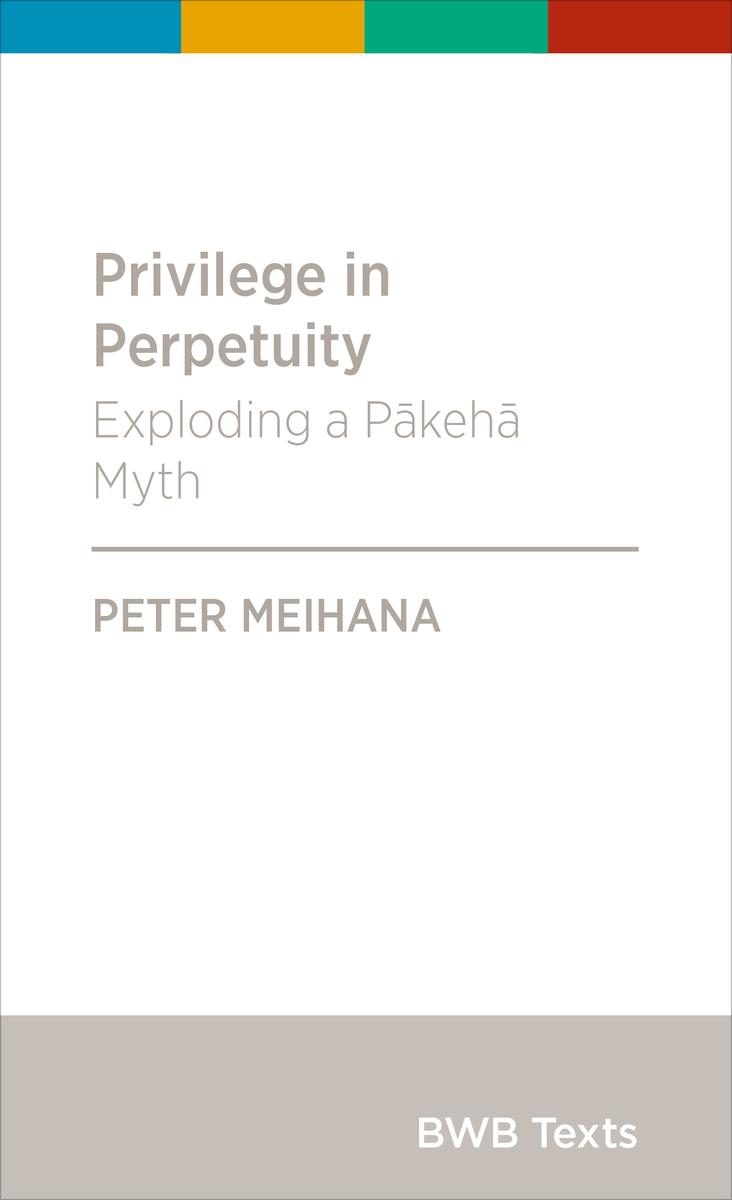
My interest in the idea of Mori privilege was sparked by the 1995 publication of Stuart C. Scotts Travesty of the Treaty.
The impact of Travesty was not insignificant. Within one year of publication it had sold 18,000 copies in six print-runs and was the subject of an episode of the current affairs show 60 Minutes.
These ideas and claims were later discussed in my doctoral thesis, The Paradox of Mori Privilege: Historical Constructions of Mori Privilege circa 1769 to 1940. The claim followed the 2003 Court of Appeal decision in Re Ngti Apa and the release of Crowns foreshore and seabed policy, all of which resurfaced an idea that is deeply embedded in New Zealand culture. Many New Zealanders hold firm to the belief that Mori have been treated better than other Indigenous peoples and, moreover, that they receive benefits that other New Zealanders do not. Some argue that the supposed privileges that Mori receive directly attack the foundations of the nation. These ideas, as I will show, are not new, but can be traced back through New Zealands history. The question of why Mori privilege has been and continues to be a dominant feature in discussions about colonisation and race relations in New Zealand seemed worthy of further examination.
While some consider Mori privilege to be a fact, this book advances the proposition that it is simply an idea or theory to be examined. I identify its origins, trace its development over time and locate its contemporary manifestations. In the course of this analysis I make a distinction between what I have termed official manifestations of privilege and populist identification of privilege.
Official privilege refers to laws, institutions and policies that purportedly protect Mori interests, and it is principally the preserve of the Crown the imperial government, the colonial Parliament and New Zealand government officials. It is often justified or made much of in government documents and policy statements. It will become apparent that what were often framed as privileges were essentially rights, that all British subjects in New Zealand had if they met the prescribed criteria.
Historically, populist identification of privilege took the form of claims, assertions and protests. These were to be found in colonial newspapers, parliamentary speeches and evidence presented before commissions of inquiry. These expressions of opinion usually focused on any Crown policy, action or institution that restricted settler access to Mori land and resources. In more recent times, particularly with the advent of social media, populist claims and assertions of privilege have reached new heights.
This book establishes that the notion of Mori privilege is not restricted to the late twentieth and early twenty-first centuries; rather, it has a venerable history, the origins of which can be seen in the eighteenth century. There are a number of key moments in the development of Mori privilege discourse. James Cooks expeditions of the eighteenth century are notable. As a result of them, Mori were incorporated into European knowledge systems. Ideas of human progress, and racial hierarchies, helped Cook and other observers come to terms with Pacific peoples, who were observed and classified. Although not ranked as highly as the Tahitians, Mori were deemed to be higher on the scale of progress than other Indigenous peoples. As 1840 drew closer, the rhetoric that emerged constructed Mori as a savage people, but a savage people worthy of protection. Moreover, among the nations of Europe, Britain thought itself ideally suited to protect and guide Mori. However, before this supreme act of kindness could occur, Mori needed to voluntarily give up their sovereignty.
The Treaty of Waitangi, and the narrative that has accompanied it since 1840, is key to understanding Mori privilege. For Britain, and later for the New Zealand government, the Treaty was primarily the means by which the Crown acquired sovereignty over New Zealand and its people. The Colonial Office in London decided that Mori interests would be best protected by regulating colonisation, and by the introduction of English law. It was not just the fact that increasing numbers of Europeans were arriving in New Zealand that drove Britain to act, however. Those sending reports back to Britain portrayed the situation in New Zealand as chaotic, largely as a result of intertribal musket wars. The popular account later maintained that it was British sovereignty that eventually imposed order. This became the received version of New Zealand history, and it is on this version of events that those who now claim Mori are a privileged people base their assertions.
From 1840 onwards the Crown looked to discharge what it held to be its Treaty of Waitangi obligations, in particular the extension to Mori of the rights and privileges of British citizens promised in article three. However, it interpreted the Treaty within the context of other pressing policy objectives that furthered the interests of the settlers. Native policy during the nineteenth century was effectively land policy, as it was land that the settlers most desired. Furthermore, according to the thinking of the time, it was land (or more precisely Mori customary tenure) that stood in the way of Mori advancement. This apparent alignment of Mori and settler interests worked well for the settlers, who acquired large tracts of land from Mori. Policy that separated Mori from the land was seen as a necessary precursor to Mori advancement; an individual title to land was the next step. Policies that achieved this end were invariably framed as a privilege and deemed to be consistent with the Treaty. From the very beginning, the notion of Mori privilege has been central to colonisation in New Zealand.
What all this privilege meant for Mori in practical terms soon became apparent. Mori were promised large reserves, hospitals, schools and ultimately a title to land that was protected by English law, but in fact were rendered landless and politically circumscribed. Yet at the same time they were consistently seen as privileged. How do we make sense of this obvious paradox? This is one of the issues that this book explores.
By the middle of the twentieth century Mori held but a remnant of the land they once did. Nevertheless, in recent decades, claims of Mori privilege have increased. Books, websites, blogs and Facebook pages dedicated to undermining Mori development have proliferated. Invariably, they attack any Mori initiative intended to improve the circumstances of Mori. For some critics of privilege, these initiatives are just a slippery slope towards separatism and apartheid. As this book shows, the idea of Mori privilege continues to be deployed to score political points. Why this should be the case is another matter for consideration.
To date, there has not been a sustained analysis of Mori privilege discourse. Historians have written around the subject but have not dealt with it specifically. What follows is an attempt at filling this gap in historical understanding.
Stuart C. Scotts Travesty did not appear in a vacuum; it was part of a growing genre of writing that historian Richard Hill terms anti-Treatyism. Hill describes anti-Treatyism as the beliefs and works of opponents of modern developments in Treaty relationships and, more broadly, race/ethnic relations.
Anti-Treatyists can also be conspiratorial in outlook. Australian Geoff McDonald argued in Shadows over New Zealand (1985) that since the 1960s academics and teachers have not given children or higher level students any real account of New Zealands past; rather, the ancestors of white New Zealanders are now being subjected to ridicule and smear.
Font size:
Interval:
Bookmark:
Similar books «Privilege in Perpetuity: Exploding a Pākehā Myth»
Look at similar books to Privilege in Perpetuity: Exploding a Pākehā Myth. We have selected literature similar in name and meaning in the hope of providing readers with more options to find new, interesting, not yet read works.
Discussion, reviews of the book Privilege in Perpetuity: Exploding a Pākehā Myth and just readers' own opinions. Leave your comments, write what you think about the work, its meaning or the main characters. Specify what exactly you liked and what you didn't like, and why you think so.

